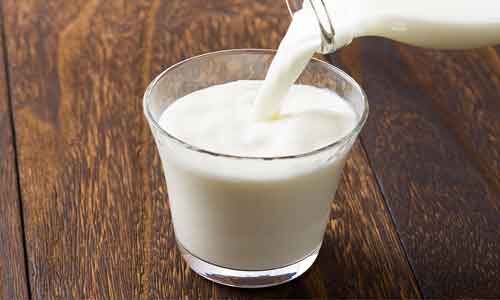- Home
- Medical news & Guidelines
- Anesthesiology
- Cardiology and CTVS
- Critical Care
- Dentistry
- Dermatology
- Diabetes and Endocrinology
- ENT
- Gastroenterology
- Medicine
- Nephrology
- Neurology
- Obstretics-Gynaecology
- Oncology
- Ophthalmology
- Orthopaedics
- Pediatrics-Neonatology
- Psychiatry
- Pulmonology
- Radiology
- Surgery
- Urology
- Laboratory Medicine
- Diet
- Nursing
- Paramedical
- Physiotherapy
- Health news
- Fact Check
- Bone Health Fact Check
- Brain Health Fact Check
- Cancer Related Fact Check
- Child Care Fact Check
- Dental and oral health fact check
- Diabetes and metabolic health fact check
- Diet and Nutrition Fact Check
- Eye and ENT Care Fact Check
- Fitness fact check
- Gut health fact check
- Heart health fact check
- Kidney health fact check
- Medical education fact check
- Men's health fact check
- Respiratory fact check
- Skin and hair care fact check
- Vaccine and Immunization fact check
- Women's health fact check
- AYUSH
- State News
- Andaman and Nicobar Islands
- Andhra Pradesh
- Arunachal Pradesh
- Assam
- Bihar
- Chandigarh
- Chattisgarh
- Dadra and Nagar Haveli
- Daman and Diu
- Delhi
- Goa
- Gujarat
- Haryana
- Himachal Pradesh
- Jammu & Kashmir
- Jharkhand
- Karnataka
- Kerala
- Ladakh
- Lakshadweep
- Madhya Pradesh
- Maharashtra
- Manipur
- Meghalaya
- Mizoram
- Nagaland
- Odisha
- Puducherry
- Punjab
- Rajasthan
- Sikkim
- Tamil Nadu
- Telangana
- Tripura
- Uttar Pradesh
- Uttrakhand
- West Bengal
- Medical Education
- Industry
Higher dairy consumption linked to increased cancer risk in Adults

Greater dairy consumption was connected with elevated risk of liver cancer, female breast cancer, and perhaps lymphoma among Chinese individuals who consumed less dairy than Western cultures, says an article published in BMC Medicine.
Previous research on mostly Western populations found different relationships between dairy intake and specific malignancies, such as a positive link with prostate cancer and inverse correlations with colorectal and premenopausal breast cancer. However, there is a scarcity of data from China, where cancer rates and dairy intake levels differ significantly from those in Western cultures. As a result, Maria G. Kakkoura and colleagues evaluated the relationships between habitual dairy intake and total and site-specific cancer risk in the China Kadoorie Biobank (CKB).
During 2004–2008, the China Kadoorie Biobank project recruited 0.5 million participants from 10 different (5 urban, 5 rural) locations across China. A validated interviewer-administered laptop-based food frequency questionnaire was used to capture consumption frequency of major food categories, including dairy products, at baseline and subsequent resurveys. To estimate the mean normal consumption amount for each baseline group and account for regression dilution bias, the consumption level at both baseline and the second resurvey was combined. Cox regression analyses for incident cancers linked with typical dairy intake were stratified by age-at-risk, gender, and area, and adjusted for cancer family history, income, education, physical activity, alcohol use, smoking, soy and fresh fruit consumption, and BMI.
The key findings of this study were as follow:
1. Overall, 20.4% of individuals reported routinely drinking dairy products (mostly milk) (i.e. 1 day per week), with an estimated mean intake of 80.8 g/day among regular consumers and 37.9 g/day among all participants.
2. There were substantial positive relationships between dairy intake and risks of total and site-specific malignancies, with adjusted HRs per 50 g/day typical consumption of total cancer, liver cancer (n = 3191), female breast cancer (n = 2582), and lymphoma (n=915), respectively.
3. After accounting for repeated testing, the link with lymphoma was not statically important.
4. Colorectal cancer (n = 3350, 1.08 [1.00–1.17]) and other site-specific malignancies had no significant relationships.
In conclusion, higher dairy consumption was linked to an increased incidence of liver cancer, lymphoma, and female breast cancer in Chinese people. Our investigation was the first and biggest Chinese prospective cohort study to reveal a link between dairy consumption and the risk of total and site-specific malignancies in China, where dairy consumption is low but growing. Future research is needed to determine the causation and probable underlying processes.
Reference:
Kakkoura, M.G., Du, H., Guo, Y. et al. Dairy consumption and risks of total and site-specific cancers in Chinese adults: an 11-year prospective study of 0.5 million people. BMC Med 20, 134 (2022). https://doi.org/10.1186/s12916-022-02330-3
Medical Dialogues consists of a team of passionate medical/scientific writers, led by doctors and healthcare researchers. Our team efforts to bring you updated and timely news about the important happenings of the medical and healthcare sector. Our editorial team can be reached at editorial@medicaldialogues.in.
Dr Kamal Kant Kohli-MBBS, DTCD- a chest specialist with more than 30 years of practice and a flair for writing clinical articles, Dr Kamal Kant Kohli joined Medical Dialogues as a Chief Editor of Medical News. Besides writing articles, as an editor, he proofreads and verifies all the medical content published on Medical Dialogues including those coming from journals, studies,medical conferences,guidelines etc. Email: drkohli@medicaldialogues.in. Contact no. 011-43720751


